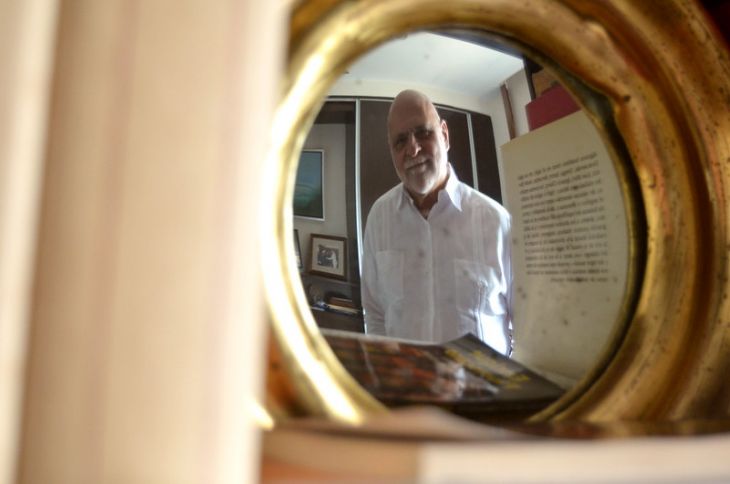After almost six years as a columnist writing regularly in this publication, many ask me how I get my inspiration and how I proceed to write article after article with what I hope is a consistent level of quality.
The key is to listen well, find a great editor who will keep you honest and fresh, and find your inspiration in a wide variety of sources.
Listening is key. You cannot write effectively if you don’t read and listen. I am constantly monitoring the news for interesting issues and watching television programs or going on-line to find thought-provoking quotes around which to build a story. Inspiration is everywhere, and one only has to pay attention to find a topic or group of words around which to write a compelling article.
For example, the element that drove me to draft this article is a conversation I had with my brother Philip in which I thanked him for being a great editor. Every writer needs an editor. When you are writing a story, it is easy to get caught up in the story. It is easy to lose yourself in myriad details that detract from rather than contribute to the objective of your story – the key message that you want to get across to readers.
It is easy to lose track when you are deeply involved in a thought, and you need an objective person to keep you on course.
If you read a good book by a serious author, you will always find an expression of gratitude in the introduction for the editors who kept the author on track. Every author acknowledges that their product is enhanced by the contribution of a great editor.
A great editor knows how to make changes without changing the author’s writing style or the key messages. He or she knows that the back-and-forth exchange of views can only enhance the article and ensure that the best possible version is published.
But great editing does not only depend on the quality of the editor.
It also depends on the humility of the author, on his or her ability to take criticism professionally and not personally, to accept the need to change things to make their product better and meet the ultimate goal of connecting with the reader in the most effective way possible.
Listening is both a humbling and ennobling experience. Humbling because it forces us to acknowledge that we don’t know everything and that others may have a better way to connect with readers. Ennobling because through our humility we improve ourselves and become better communicators. We must learn to accept criticism without making it personal, enhancing our professionalism and our ability to learn and grow.
An article is a conversation between author and reader. If the author is incapable of convincing an editor of the validity of the piece, how can he or she expect to do the same with a wide variety of readers? This is especially true in this era of fake news and false information, in which people do not exert critical judgment in evaluating the written or spoken word, and in which those who shock, or shout loudest, get attention.
A good editor will ensure that your facts are correct, that your delivery of those facts connects, and that your article is esthetically pleasing.
Finally, a columnist is not a journalist.
A columnist tries to espouse a point of view but often overly slants the research to meet his or her own personal communication objectives. Indeed, I depend as much on my intuition and beliefs as I do on the facts in order to create a column. Intuition is our source of creativity while our beliefs help guide our opinions, but these must be balanced by fact in order to provide an honest assessment of any given situation.
An editor who espouses a carbon copy of your own thoughts is of little use. An editor who knows the subject matter and where to find the relevant facts is invaluable as an ally to keep the story on course and accurate.
The relationship between an author and editor is one of confrontation and dialogue. Confrontation in the sense that opposing ideas create a dynamic conversation in which all sides of an argument are put on the table before the best ideas are selected. The resulting dialogue leads to a better and more balanced result and, in the end, a better article.
So, my best advice to any aspiring writer is to dig deep into your intuition to allow your views to flow to the screen via your fingers and the keyboard, find a great editor who improves your product and shows you how to better connect the message to the audience in the most direct and gripping way possible, and to read and listen constantly to develop ideas and thoughts that you can translate into an interesting basis for a dialogue with your audience.
Absent this, you will miss the main point of an opinion piece, which is to effectively connect with your audience while seeking to enhance the dialogue.
Edition: Estefanía Cardeña
Proyectos realizados en el país tendrán incentivo fiscal de 30 % del ISR
La Jornada Maya
El célebre “Jefe Ratonero del Gabinete” ha servido a seis primeros ministros y se mantiene como figura entrañable del poder británico
Ap
El plan urbano propone una visión participativa y sostenible, abierta a ajustes mediante consulta ciudadana
Rosario Ruiz Canduriz
Comparsas, batucadas y carros alegóricos animaron el arranque; saldo blanco y amplia participación ciudadana
La Jornada Maya
